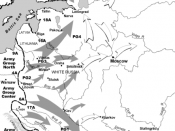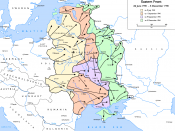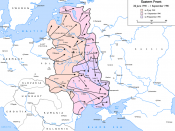On June 22, 1941, German forces invaded the Soviet Union, abrogating the Russo-German anti-aggression pact and initiating the greatest land war in the history of man. Hitler captured the tone of the conflict when he described it as being a time when, "The world will hold its breath." He, and the rest of the watching world knew that a German victory would dramatically add to the power of the Nazi regime, while a successful Russian defence would conversely do much to stop Hitler's goal of acquiring lebensbraum, or living space. Although this campaign, eventually named Operation Barbarossa, was one of the most significant theatres of World War II, it remains a centre of controversy that scholars revisit time and again. One of the key questions that drive this debate asks why, instead of realizing the swift victory they expected, the German forces failed to bring about the defeat of the Soviet Union in 1941.
While there were many factors that led to the collapse of the German plan, all of the specific details can be associated with three basic themes. Operation Barbarossa ultimately failed because of a combination of German ideologies and military strategies, Russian defensive strategies, and the Russian winter.
For their careless supremacist ideologies, and their disjointed tactical scheme, the Nazi leadership, and especially Hitler, were ultimately to blame for the failure to bring about a quick German victory. The Germans believed themselves to be superior to the "sub-human" inhabitants of the country that they sought to conquer. To the Germans, ethnic Slavs and Jews were on the same, if not lower, level than animals and it is obvious from recounts of the Holocaust that German captives were treated harshly and often horrifically. There was no definite policy from German leadership as to how captured Russian...


